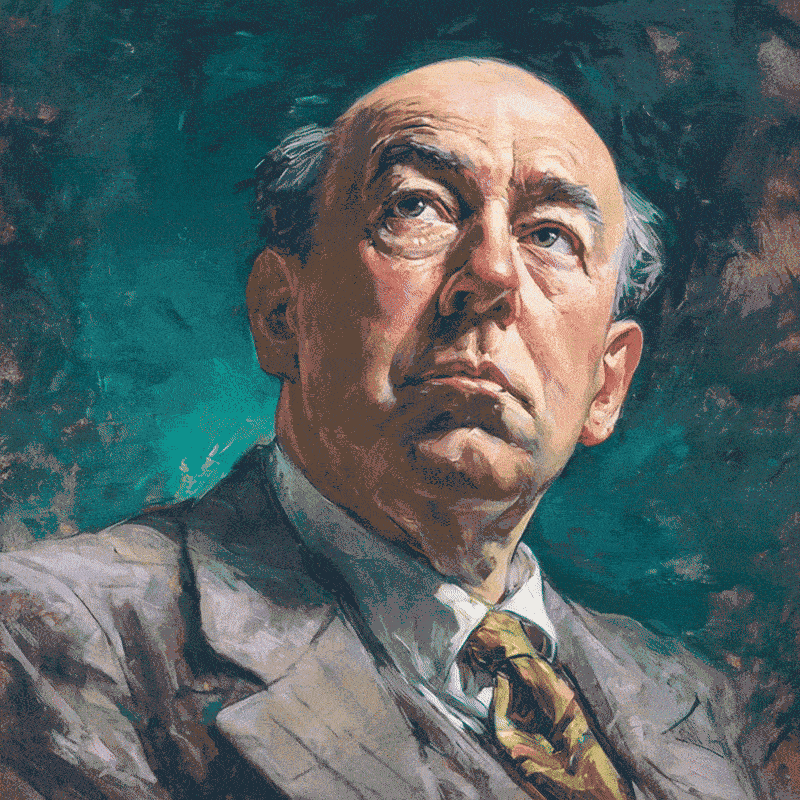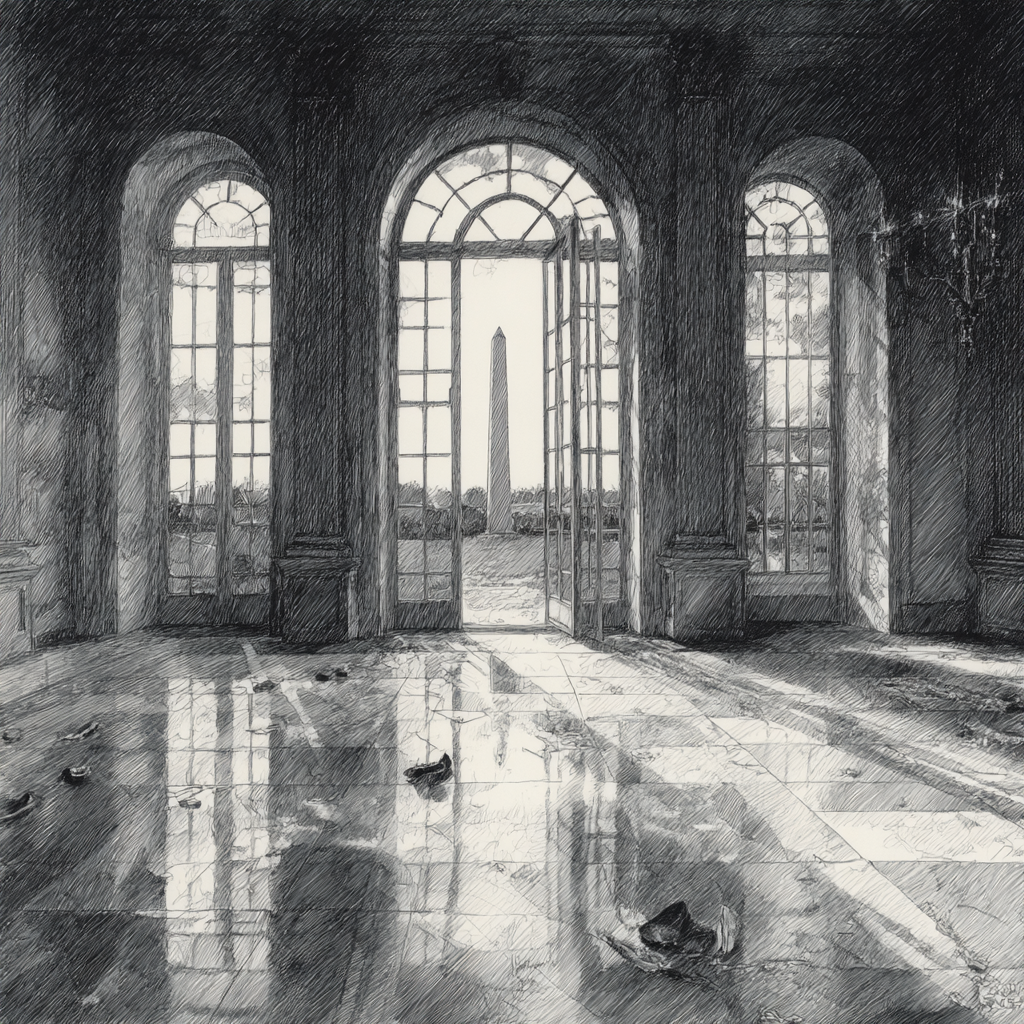ESSAY
A Shutdown, a Moral Test
By W.J. Locke, November 7, 2025Editor’s Note: Since this essay was written, the government has reopened and SNAP benefits have continued without interruption. Yet the episode serves as a reminder that a nation’s stability is tested not only in its budgets, but in its care for the vulnerable.
"Give us this day our daily bread"November’s Test: Gratitude and Responsibility
November is meant to be a season of thanksgiving — a time to recall that gratitude and generosity once lay at the heart of our national story. Yet as another shutdown looms, millions of Americans who rely on SNAP (the Supplemental Nutrition Assistance Program) are left wondering if their benefits will arrive. If the government stalls, so too will the quiet mercy that fills dinner tables across the country. The USDA has warned that funding for November may be disrupted. It is a moral test: not of our fiscal policy, but of our national character. What does conscience require of us?
The Measure of a Nation
Jesus kept no ledger before feeding the hungry. He did not inquire who in the crowd deserved to be fed, or whether the loaves and fishes might strain the temple budget. In the Sermon on the Mount, He spoke plainly: “For I was hungry and you gave me something to eat” (Matthew 25:35). The test of a people, He demonstrated, is not how they balance their books, but whom they choose to protect.
Perhaps the question is not whether we can afford to feed the poor, but whether we can afford what it will cost us if we don’t.
Protection and Responsibility
Some argue that mercy belongs to the Church, not the state, that government has no role in feeding the hungry.
In truth, it is the work of both. The Church offers love; the state offers protection. And when families fall on hard times, that protection takes the form of food.
Private charity is essential, but the need now far outstrips what local ministries and community groups can meet alone. Nearly forty million Americans rely on SNAP each month. No collection plate can fill that gap. To govern, then, is not to replace compassion, but to make its reach possible. A nation that defends its people from enemies abroad should not leave them defenseless against hunger at home.
Priorities and Proportion
Consider that in the same budget cycle, Congress has approved $20 billion to bail out Argentina’s government, over $100 million for new executive aircraft, and more than $200 million for a new White House ballroom. Those expenditures may have their place in diplomacy or governance, but they ring hollow beside the face of a child who may go hungry because a political standoff has frozen her mother’s benefits.
This is not a partisan issue. It is a question of moral proportion. Augustine once wrote that a people are defined by what they love. If a republic’s treasure flows more readily toward prestige and power than mercy and nourishment, the soul of that nation is at risk of famine too.
Our Inheritance: How Early Christians Viewed Charity and the State
The earliest Christian communities treated charity not as an optional virtue but as a civic duty within the kingdom of God. The Didache (1st century) urged believers to “share all things in common” and to “give to everyone who asks.” By the 4th century, Basil the Great and John Chrysostom condemned the wealthy who hoarded abundance while the poor starved; Basil wrote, “The bread which you keep belongs to the hungry.” In colonial America, Puritan townships levied local taxes to feed the poor, seeing public relief as an expression of Christian virtue and duty. The Founders inherited that conviction: that liberty requires virtue, and virtue requires mercy.
Bread, Not Banquets
Dorothy Day reminded us that the Gospel removes our right to discriminate between the deserving and the undeserving poor. Thomas Aquinas taught that the goods of this world are meant for the sustenance of all, not the comfort of the few. To govern is to steward both resources and righteousness.
The “government has no money” argument often conceals a more uncomfortable truth: that priorities, not resources, define a nation’s mercy. When the widow’s mite — the smallest act of sacrifice — is called waste but the banquet hall necessity, something sacred has been misplaced.
Faith, Reason, and Remembrance
Faith and reason remind us: neglect breeds decay. A society that withholds bread in pursuit of balance sheets will soon find its moral accounts overdrawn. The Christian response is not outrage but remembrance, of what we are called to be.
In George Washington’s 1789 Thanksgiving Proclamation, he called upon the nation “to promote the knowledge and practice of true religion and virtue, and the increase of science among them.” Virtue, then as now, was understood as the republic’s sustenance.
Thanksgiving, rightly kept, is not only about gratitude for what we have but compassion and a measure of support for those who have less. The table means little if there is no bread for the hungry. As we bow our heads this year, the question before us as citizens and as a nation is whether we still believe that virtue and mercy are the true measure of a nation.
Selected References
Holy Bible, Matthew 25:35
Augustine of Hippo, City of God, Book 19, Ch. 24
Dorothy Day, The Catholic Worker archives (c. 1940s)
Thomas Aquinas, Summa Theologica, II–II, Q.66
George Washington, Thanksgiving Proclamation (1789)
Didache 1:5; 4:8
Basil the Great, Homily on Avarice
“The Gospel takes away our right forever to discriminate between the deserving and the undeserving poor.”
- Dorothy Day
CURRENT ARTICLES





